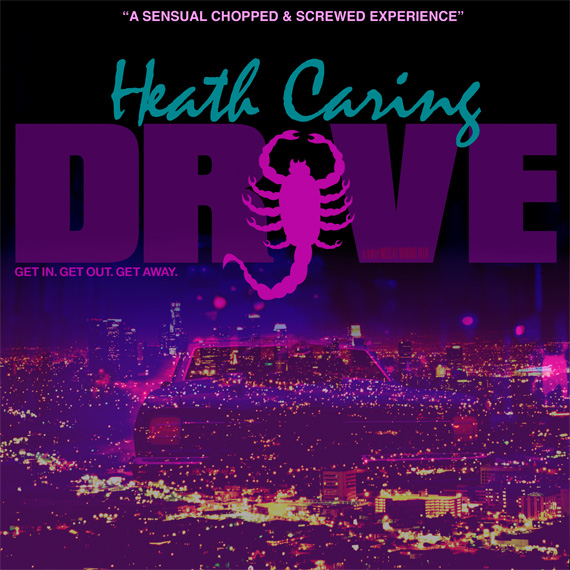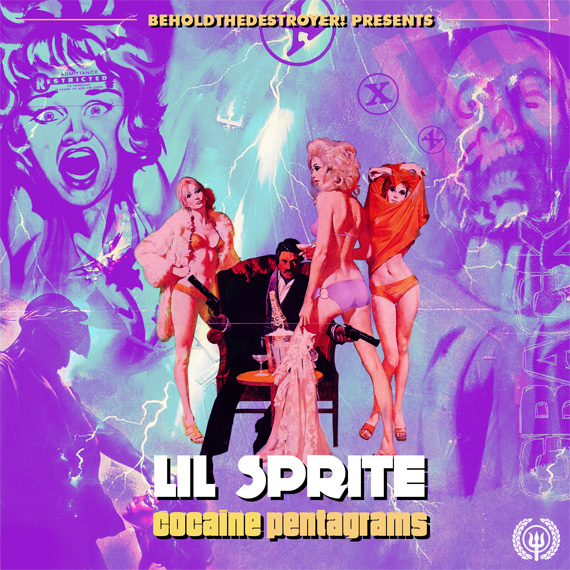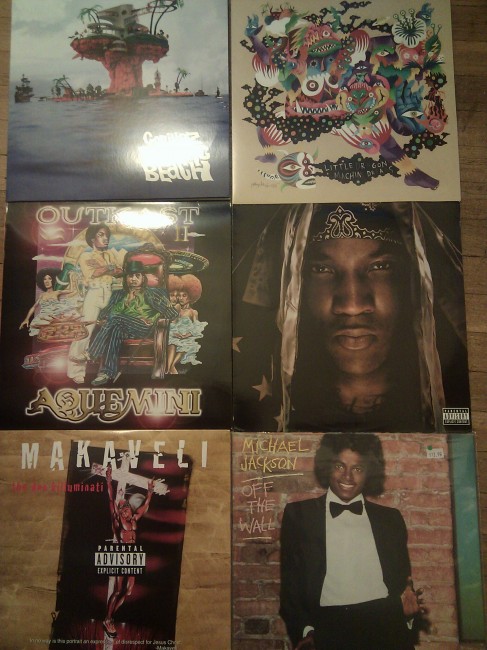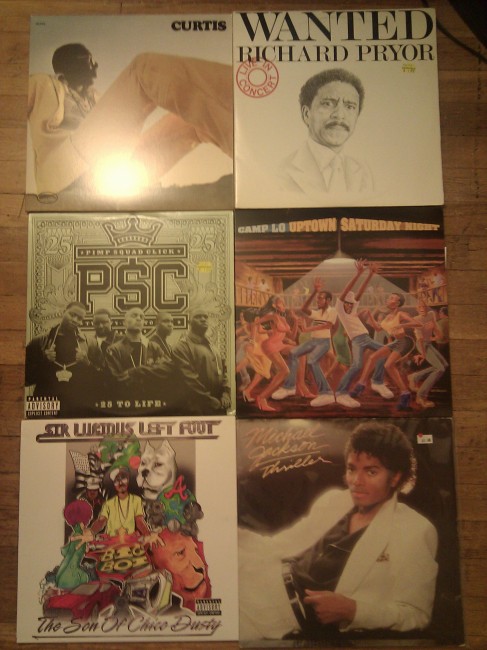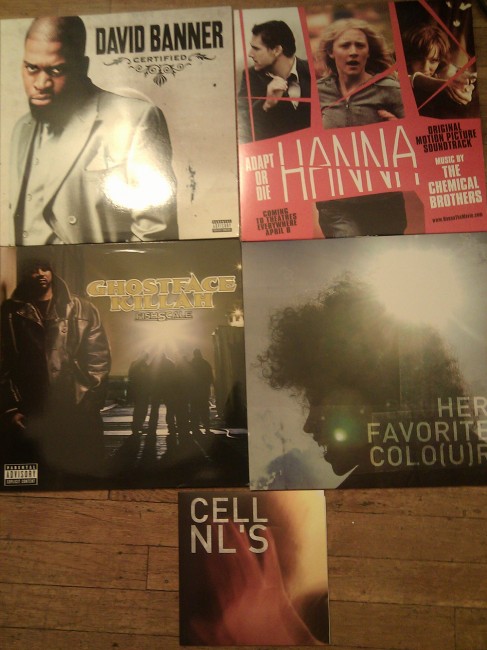Almost ten years ago now, Cameron “Killa Cam” Giles, one of my favorite rappers, launched an assault on the rap industry. He came out wearing pink polos and pink fur coats while driving a pink Range Rover. It was a dare and a dis, all wrapped up in one incredible package. The dis was that Cam was so much more secure in who he was than every other rapper that he could co-opt pink, a feminine color, and rock it like it was all black everything without losing any of his manhood. It dared other rappers to say something about him, so that he could turn any of their attacks back on them. “I dare you to test me over what I’m wearing,” the pink seemed to say. “We’ll see who the real man is.”
Killa Cam botched the dis from word one, though, by clinging to “no homo.” Any power his pink swagger might have held over insecure rappers was utterly defused by Cam’s own insecurity and fear of being seen as feminine or homosexual. He went from alpha male to typical punk over the course of three short syllables, snatching defeat from the jaws of victory.
One of the worst things about having a rough year are those moments of clarity that come along every once and a while. They aren’t respites from pain so much as a quick gasp of air before returning to drowning. They give you a chance to understand exactly how far in over your head you are.
I had one twelve days ago, and it hurt. It hurt so bad that I had to sit down and write out exactly what’s gone wrong and how I could fix it. It started as something I thought about putting on the internet and quickly turned into a conversation with myself. No, it quickly turned into a heated and honest conversation with myself.
I wrote out where I’d been lying to myself, what I’ve been doing wrong, what’s gone wrong, and how I got here. I wrote out where I wanted to go and why I’m not there yet. I cussed myself out and smoothed myself over. I admitted that the best I’m able to do lately, physically/emotionally/mentally, is “I’m maintaining.” I tried to work out solutions to the things I could handle and a gameplan to treat water until I could handle the things I currently can’t. I made it a point to make myself uncomfortable, to be even more unfair to myself than I generally am, so that I could get the job done.
The solutions, such as they were, weren’t the hardest part, but they were close. I don’t have many, but I wrote down a lot, just to see how they tasted. Reasonable ones, unpleasant ones, unthinkable ones, I wanted to know how they all felt jockeying for position in my head. So I wrote them.
I looked at a certain subset of those solutions and said, “No. These are weakness. Unacceptable.” And I crossed them off my list and put them out of my head. Accepting them would have drastically changed who I am and how I live in ways that are uncomfortable to think about. So I rejected them. I don’t want to be weak.
Malcolm X, 1965: We declare our right on this earth to be a man, to be a human being, to be respected as a human being, to be given the rights of a human being in this society, on this earth, in this day, which we intend to bring into existence by any means necessary.
I latched onto Malcolm because he didn’t beg or plead or ask. He told. There’s something attractive and powerful about that, when you’re small and unsure. Something real manly. Something strong.
“I am a man. You are going to treat me like one, or you — not me, you — are gonna have a problem.”
I’m an ’80s baby. I was born in 1983. My mother raised me. My father didn’t. Without a template to follow, my idea of manhood is a patchwork affair. A little Tupac, a little Malcolm, a little Denzel by way of Malcolm not much Martin at all, a little of my grandfather, probably a little of Shawn Corey Carter, a little of my uncles, and a little more from here and there. Instead of being shown, I had to figure out manhood for myself. Trial and error. What skin fits the best? What school of thought will get me killed? How hard do I have to try to get this right? Can I get this right?
I know where I stand on a lot of things. I avoid passive-aggression at all costs. If it’s important enough for me to want to pass-agg somebody about it, it’s important enough to be worth naming somebody’s name. I frown when my friends go pass-agg over something. I believe in being direct, because that is what a man does. No dilly-dallying, no fooling around. You get it done as efficiently and cleanly as possible. I learned to work until the job is done, no matter what it takes, from my grandfather. I learned to get in somebody’s face when they treat you like trash from my mother.
I still don’t have it figured out.
There are a lot of men like me.
Kendrick Lamar, “Chapter Six,” from Section.80 : There’s a more important topic I’d like to discuss: the dysfunctional bastards of the Ronald Reagan Era. Young men that learned to do everything spiteful. This is your generation. Live fast and die young. Who’s willing to explain this story?
: There’s a more important topic I’d like to discuss: the dysfunctional bastards of the Ronald Reagan Era. Young men that learned to do everything spiteful. This is your generation. Live fast and die young. Who’s willing to explain this story?
When interviewing Ron Wimberly about his graphic novel Prince of Cats , I said: “Tybalt, like the world of Prince of Cats, feels so familiar. His suicidal rush toward manhood and respect reminds me of… honestly, almost every black man that I’ve known, myself included.”
, I said: “Tybalt, like the world of Prince of Cats, feels so familiar. His suicidal rush toward manhood and respect reminds me of… honestly, almost every black man that I’ve known, myself included.”
“Suicidal rush toward manhood and respect.”
I don’t know if I stole the turn of phrase from somewhere. I probably did. Regardless, it’s an apt description for what I’m trying to talk through. We want to be men, by any means necessary (“by a very specific set of means, all of which are necessary,” maybe), and that means proving ourselves against other men. “Give me the respect I deserve or I’m going to take it by force.” “Time is running out, tick tock, like the grains of sand. Every man sharpens man, like steel sharpens steel.” Boys, desperate for the attention of men so that they might be seen as peers, as equals, instead of children.

Live life reckless.
Part of that suicidal rush is rejecting the soft and the feminine. In figuring out what it means to be a man, you define your manhood by specific absences. You discard forgiveness for vengeance, defeat for victory. Death before dishonor. Being a man is inviolate, and anything that tests your manhood, that shows you anything less than the respect you feel you deserve, is targeted for destruction.
Cee-Lo Goodie, on Goodie MOb’s “The Experience”, from Still Standing : So many black men out here trying to be niggas, keeping it real to the point that they dying to be niggas.
: So many black men out here trying to be niggas, keeping it real to the point that they dying to be niggas.
I look at Wimberly’s Tybalt and I see a man that’s uncomfortable expressing love directly to his loved ones, but eager to show his love by demonstrating exactly how much he’s willing to hurt whatever threatens the object of that love. “I love you” is hard. Putting a blade to someone else’s throat is easy.
Romeo’s intrusion into Tybalt’s life, and attraction to Juliet, is an insult. He’s a rival, someone to be defeated, not someone to love as a brother. So, instead of having a conversation with Juliet after he discovers that she’s married a man he hates because they’re in rival crews, Tybalt steps to Romeo. “Thou art a villain,” he says, and dies a man.
But imagine what happens when your new husband kills your beloved cousin over petty beef. Imagine the trauma, the hole that would leave behind, all for the sake of manhood.
Big Boi on OutKast’s “Return of tha G” from Aquemini : Man, a nigga don’t want no trouble. A player just want to kick back with my gators off and watch my lil girl blow bubbles. But still ready to rhyme, standin’ my ground, never back down, willin’ to rob, steal, and kill anything that threatens mine.
: Man, a nigga don’t want no trouble. A player just want to kick back with my gators off and watch my lil girl blow bubbles. But still ready to rhyme, standin’ my ground, never back down, willin’ to rob, steal, and kill anything that threatens mine.
Drake first hinted at an upcoming Aaliyah project during an interview with Tim Westwood in March. “I have some great Aaliyah news coming soon,” Drake told Westwood, adding, “You know it’s hard for me to ride around to a female singer because at the end of the day, you’re a man, but she always kept it so G with the writing and the melodies. It was something to ride to, especially when it was chopped and screwed. That’s when I used to love.
—Aubrey Drake Graham on Aaliyah
Drake is either playing a role here — and by that I mean lying — or he’s insecure. That’s the only excuse for what he’s saying here. The idea that Aaliyah was more of a gangster than other singers (she wasn’t, that’s silly) and is therefore more appropriate to rock in your whip is insane. Who thinks like that? It’s a parody of thugs, which Drake is most definitely not.
This is what happens when you grow up spiteful. This is what happens when you are obsessed with being seen as, not just a man, but more of a man than most men. You reject your own history and your own softness. You define yourself not as a man, but as not-female, and you reject anything that feels female to you.
Drake is implicitly dissing Aaliyah here, and more than that, he’s dissing every woman singer and rapper that came before her. He’s dissing Lauryn Hill, Sade, Janet Jackson, Aretha Franklin, Ella Fitzgerald, Toni Braxton, Alicia Keys, Whitney Houston, and everyone else who helped provide the soundtrack to our lives and history. He’s lumping them together as something soft and not-gangster, something I think those women would be pretty surprised to hear, considering the nonsense (nonsense just like this quote!) they had to fight through just to be heard.
Drake once said that he was the first rapper to successfully sing and rap as a style. It’s a boast, another desperate grasp at a thin vision of manhood. “Nobody’s as good as me, you know? I’m just the real deal.”
Lauryn Hill and Missy Elliott would beg to differ.
Andre 3000 on OutKast’s “Return of tha G” from Aquemini : Return of the gangsta, thanks ta them niggas who got them kids who got enough to buy an ounce but not enough to bounce them kids to the zoo or to the park so they grow up in the dark never seein’ light so they end up being like yo sorry ass, robbin’ niggas in broad ass daylight, get down.
: Return of the gangsta, thanks ta them niggas who got them kids who got enough to buy an ounce but not enough to bounce them kids to the zoo or to the park so they grow up in the dark never seein’ light so they end up being like yo sorry ass, robbin’ niggas in broad ass daylight, get down.
It’s a cycle. The average black man only influences a small number of people over the course of his life. Children, friends, cousins. Coworkers maybe. They can give people poison or peace, depending on who and what they are, and those that are influenced in turn influence others. I didn’t become a man and suddenly know exactly what manhood entailed. I had to be taught, I had to figure it out, and at some point, I’m going to end up passing that on. Actually, I already have. I have younger cousins who looked up to me when I was growing up, and I’ve undoubtedly influenced them already.
I can look at my mother and see my temper. I can look at my father and see my distance. I’m an amalgam of what I’ve learned, and those that I will influence are the same thing. We feed off each other and others. Each one teach one.
Drake has an audience who listens to his words and are piecing together their own fragile manhood, too. My audience is maybe two dozen strong. His is larger, much larger. And when Drake demonstrates his insecurities in public, people don’t see a small man desperate to be seen as something larger. They see a famous, successful man, a man women want to sleep with, and they digest his words in that context. I did it with Jay-Z, Mos Def, DMX, and the Dungeon Family. I internalized a lot of poison because it seemed like the right approach to take. I worked some of it out. I absorbed some of it. Work in progress.
This cycle won’t ever end. It’d need a seismic, or apocalyptic, shift in society to force that change. But the cycle is a vicious one, and it results in stunted and deficient men. Men who have no idea how to be men and keep picking the wrong route on their way to an early grave or a poisoned life. Not always, obviously, but too often.
We’ve got to change the situation, but that’s a tall order, isn’t it? There’s so much inertia, so many ingrained prejudices and ideas to work out. I don’t know how to fix it, but I do know that I can’t support these fakes.
But then, even though I don’t support these fakes, I definitely get down with a few others who are fake. So maybe it’s all bad. Everything. I’m not man enough to make a decision I can consciously recognize as being the right decision for whatever reason. So, in a way, I’m propping up and perpetuating the same thing that I hate.
Tupac Shakur: The Hate U Give Little Infants Fucks Everybody.



